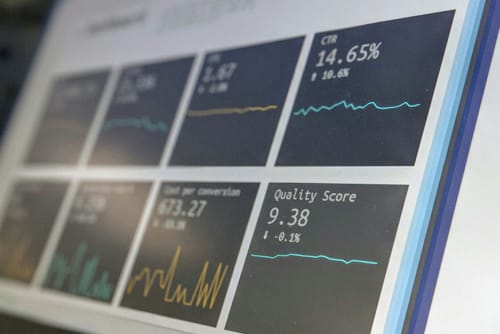Business Intelligence for SMEs: Data-Driven Decisions
Business Intelligence for SMEs is no longer a luxury reserved for large corporations. Today, thanks to accessible tools and advancing technology, small and medium-sized enterprises can leverage their data to make smarter decisions, anticipate market trends, and optimize resources.
In an increasingly competitive environment, implementing Business Intelligence for SMEs means transforming scattered information into strategic knowledge. This empowers them to compete on fairer terms with larger companies, reduce risks, and seize growth opportunities.
What is Business Intelligence and Why Does it Matter for SMEs?
Business Intelligence (BI) is a set of processes, technologies, and tools that allow organizations to collect, analyze, and present key information for decision-making.
For SMEs, BI solutions help to:
- Centralize data from sales, marketing, inventory, and finance.
- Detect consumption patterns and new business opportunities.
- Create easy-to-read visual reports.
- Improve operational efficiency and reduce costs.
This enables SMEs to answer critical questions such as: Which product is most profitable? Which sales channel delivers the highest revenue? Which customers are the most loyal?
Data and Statistics Driving Adoption
The impact of Business Intelligence for SMEs is already reflected in numbers:
- According to Deloitte, 62% of SMEs using BI have reported improved operational efficiency.
- Gartner estimates that by 2026, over 75% of small businesses will have adopted advanced analytics solutions.
- Companies integrating BI into their strategy can achieve up to 20% higher revenue, thanks to smarter commercial decisions.
These statistics prove that investing in BI is not an expense but a growth accelerator.

Accessible Tools for SMEs
A large budget is no longer necessary to take advantage of BI. Today, there are cloud-based solutions that fit businesses of any size, including:
- Power BI (Microsoft): popular for its seamless integration with Excel and Office.
- Tableau: ideal for building intuitive visualizations.
- Zoho Analytics: affordable and suitable for small businesses with automation features.
- Google Looker Studio (formerly Data Studio): free and flexible for connecting multiple data sources.
These platforms give SMEs access to analytical capabilities that were once exclusive to global corporations.
Real-World SME Success Stories
- Local restaurants: By analyzing consumption habits, they optimized menus and reduced food waste by 15%.
- Fashion e-commerce: They identified Instagram campaigns as their most profitable channel, boosting revenue by 30% by focusing investments there.
- Auto parts distributors: BI helped predict seasonal demand, improving inventory management and cutting storage costs by 20%.
These examples show that the benefits of BI are tangible and achievable for businesses of all sizes.
Benefits of Business Intelligence for SMEs
- Smarter strategic decisions: based on real data, not intuition.
- Cost reduction: through process efficiency.
- Revenue growth: by identifying new opportunities.
- Higher customer satisfaction: with personalized offers.
- Scalability: tools grow with the business.
Challenges and How to Overcome Them
Despite its benefits, SMEs may face certain challenges:
- Initial cost: many assume BI is expensive, but affordable cloud plans exist.
- Training needs: lack of technical knowledge can be a barrier, though free courses and consulting services are available.
- Resistance to change: some teams prefer traditional methods, so it’s key to demonstrate quick wins.
Overcoming these barriers opens the door to stronger, sustainable growth.
Future Perspectives
The future of Business Intelligence for SMEs will be even more promising with support from technologies like artificial intelligence (AI) and machine learning. These advances will allow businesses to:
- Predict customer behaviors with greater accuracy.
- Automate real-time analysis.
- Integrate data from multiple digital platforms in seconds.
This means even the smallest SMEs will soon have access to advanced analytical capabilities once reserved for big corporations.
Conclusion
Business Intelligence for SMEs is one of the most powerful tools for competing in today’s world. It’s not just about analyzing data, but about transforming information into decisions that drive profitability, growth, and resilience.
The time to adopt BI is now. SMEs that embrace it will be better equipped to face competition, seize opportunities, and secure long-term success.

